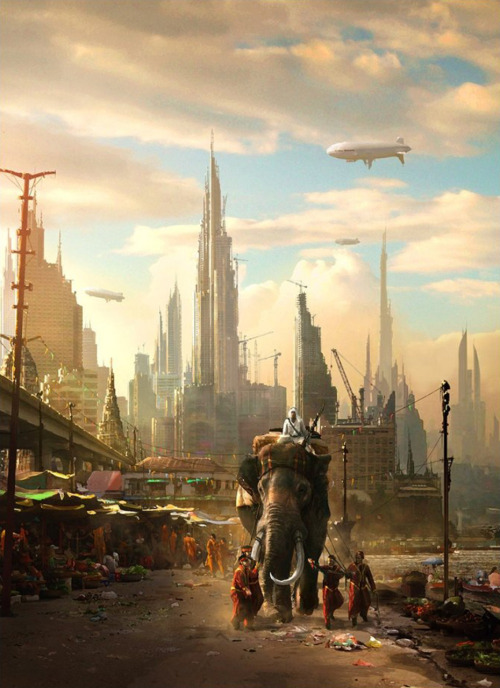The Windup Girl, Revisited
/
In 2009, I picked up Paolo Bacigalupi's The Windup Girl based on the cover and early reviews. It looked like an interesting read, and I quickly devoured it, enjoying the complexity of the plot and intertangling characters in an all too frightening future that looks all the more plausible today. It's been two years since I read the book, and finding myself stuck in my car for much of the weekend, I decided that listening to a book would be better than constantly fiddling with the radio: a good as a time as any to revisit a book that I've recommended countless times.
The book far exceeded my expectations when I first read it, and revisiting the novel has surpassed my memories of the book. In the time since reading it, much has changed in the world: we're still in the middle of an economic crisis, one that has spread world-wide. Conflict has broken out in new places around the planet, and we've seen a number of ecological and industrial disasters that have been both highly public and highly contentious.
The Windup Girl has also done exceedingly well since my first read: it's garnered Bacigalupi the 2009 Nebula Award for Best Novel, the 2010 Hugo Award for Best Novel (along with with China Miéville's fantastic The City & the City), the 2010 Compton Crook Award, the 2010 Locus Award for best first novel and the 2010 John W. Campbell Memorial Award. Time Magazine has named the book one of the top ten books of 2009, and it's established Bacigalupi as a major up and coming writer.
What impressed me the most about the book was the interconnected nature of the entire, overall story. Bacigalupi takes a snapshot of a contentious, troubled, point in our future. Global climate change has had a profound impact on the worldL sea level rise has impacted millions, while war, politics and corporate entities appears to be linked in a single dangerous dance.
The strongest point in the entire novel is in how the various stories are handled: one action influences all of the other actions. It's an excellent example of two schools of thought when it comes to characters: characters either make the world themselves, through their actions (Self-made man), or the actions define the characters (Rising to the occassion). Jaidee's White Shirts, the enforcement arm of the Environmental Ministry, work to ensure that their country and city do not succum to the horrors of the outside world: diseases, war, conflict, trade, and so forth. They act as customs for Bangkok and Thailand. Early in the story, they destroy a sizable amount of cargo that is being brought in by outside interests, one of which is Anderson Lake. Lake is there to get the seedbank and work with the Environmental Ministry's rival, the Trade Ministry, to try and leverage his company's way into the country. The third puzzle is Emiko, a windup who's very presence is something that the Environmental Ministry is trying to keep from the country, and who runs to Anderson as life becomes more and more difficult for her.
The three storylines interact in an ever-closing circle. The destruction of the air pads and cargo at the hands of the Environmental Ministry sets into motion conflict between all three storylines: Trade and their interests are furious at the losses, and move against the Environmental ministry, which shocks the city into further conflict, with each of the numerous characters involved. The actions of one influence the larger picture in ways that's hard to see individually, but clearer collectively.
Bacigalupi lays his fingers down on a key point when it comes to the interaction between government and politics, and The Windup Girl is a very political novel. Multiple sides are presented: the factions in the Environmental Ministry that sticks to a rigid goal of protection, while the Trade Ministry works to leverage their own advantages. At the end of the day, the story really looks to the influence of money on people: the highly corruptable, and the marginally less so, and how that motivates their rise and retention of power. While all sides are equally flawed - both sides are corrupt in their actions. It's clearly a book that looks at what happens when large corporations gain a lot of influence and power in a political system. They work to their own advantage, an end that's not usually in line with the overall good ends of a country and large population.
What does that sound like?
The Windup Girl hit at the right moment: We're facing environmental degredation at the hands of a population and from corporations that can't look to practical, long term requirements or beyond shareholder interests, and when power in politics is generally distrusted by a large number of Americans. While listening and reading this book, I've had snippets of news on the radio or from twitter about protests from around the world, protests against an entire array of opressive governmental power and economic disparity. I view science fiction as the literature of the moment, and this book has certainly hit on a wide range of important points. Bacigalupi's future holds much of the same, in different forms and examples, in an all too realistic, frightening and plausible vision. It's a book that's not only held up to its first reading, but grown in significance.
